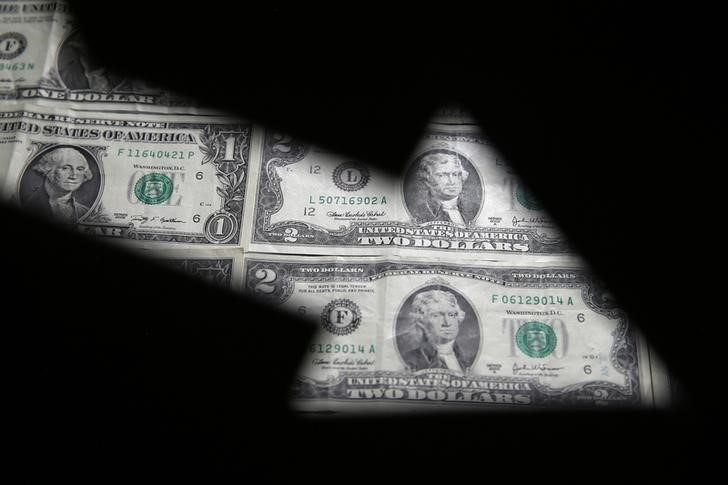By Peter Nurse
Investing.com - The safe-haven U.S. dollar soared to a new 20-year high in early European trading Wednesday, as more hawkish Fed speak and rising Treasury yields spurred fresh recession fears.
At 02:55 ET (06:55 GMT), the Dollar Index, which tracks the greenback against a basket of six other currencies, rose 0.5% to 114.597, after hitting a fresh two-decade high of 114.653 earlier this session.
The Federal Reserve has made it clear that its fight against surging inflation is currently its most important mission, and it would be continuing with big interest rate increases even at the potential expense of sending the country’s economy into recession.
That message was reinforced overnight by Chicago Fed President Charles Evans, St. Louis Fed President James Bullard and Minneapolis Federal Reserve Bank President Neel Kashkari, with Bullard saying that rates would need to stay at a higher rate for “some time to make sure we’ve got the inflation problem under control.”
This tone pushed benchmark U.S. 10-year Treasury yields above 4% for the first time since 2010, before edging back to the current 3.982%.
Elsewhere, GBP/USD fell 0.8% to 1.0649, remaining near all-time lows as the repercussions following the new U.K. government’s radical tax cut plans continue to be felt within the markets.
The International Monetary Fund openly criticized the new economic strategy on Tuesday, saying “given elevated inflation pressures in many countries, including the U.K., we do not recommend large and untargeted fiscal packages at this juncture, as it is important that fiscal policy does not work at cross purposes to monetary policy."
The slump in sterling prompted Bank of England Chief Economist Huw Pill, on Tuesday, to state that the central bank was likely to deliver a "significant" rate increase when it meets next in November.
EUR/USD fell 0.5% to 0.9545, not far off from its recent 20-year trough of 0.9528, with the single currency weighed by the recent escalation of the Eurozone's energy crisis.
Russian gas monopoly Gazprom (MCX:GAZP) said late Tuesday that it may seek to add the Ukrainian gas pipeline operator Naftogaz Ukrainy to Russia's list of sanctioned entities, likely cutting off almost all of its remaining supplies to the EU.
This followed accusations of sabotage directed at Moscow after major leaks into the Baltic Sea from two Russian gas pipelines at the center of an energy standoff.
Consumer sentiment in Germany is expected to slump to a fresh record low in October, with the GfK forecasting Wednesday that its consumer confidence index will fall to -42.5 next month, dropping from a downwardly revised reading of 36.8 in September.
USD/JPY edged higher to 144.79, remaining near the crucial 145 level even after Japan's intervention to prop up the fragile currency last week.
The risk-sensitive AUD/USD fell 1.1% to 0.6366, near its lowest level since May 2020, while USD/CNY rose 0.7% to 7.2301, with the yuan slumping to its weakest level since the 2008 financial crisis.
